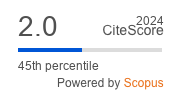How experiments in the fuzzy front end using prototyping generates new options
DOI:
https://doi.org/10.23726/cij.2017.463Keywords:
Fuzzy Front End, experiments, prototypes, punctuation, playfulness.Abstract
The fuzzy front in product development is frequently mentioned as the most critical phase of the innovation process, and the five cases of successful design innovations here indicate that experiments and an experimental approach are generating positive outcomes. The experiments in the cases can be characterized as various forms of prototyping. Interestingly the prototyping and experiments took place in the very early phases of the innovation process, rather than later as often advised and interestingly experimentation in the cases here appears to be a vehicle for creating new options. Furthermore, the analysis demonstrates that prototyping can be considered as a punctuation device, as it offers those involved the option of opting out of ongoing processes, routines and engage in playful behavior by allowing for a freer experimentation with materials, processes, methods to challenge existing knowledge and explore potential solutions. In science, by contrast, experimentation generally is carried out to support, refute, or validate a hypothesis, in other words it seems to be associated with testing options rather than creating them.
Downloads
Published
How to Cite
Issue
Section
License
Authors who publish with this journal agree to the following terms:
- Authors retain copyright and grant the journal right of first publication with the work simultaneously licensed under a Creative Commons Attribution License that allows others to share the work with an acknowledgement of the work's authorship and initial publication in this journal.
- Authors are able to enter into separate, additional contractual arrangements for the non-exclusive distribution of the journal's published version of the work (e.g., post it to an institutional repository or publish it in a book), with an acknowledgement of its initial publication in this journal.
- Authors are permitted and encouraged to post their work online (e.g., in institutional repositories or on their website) prior to and during the submission process, as it can lead to productive exchanges, as well as earlier and greater citation of published work (See The Effect of Open Access).


